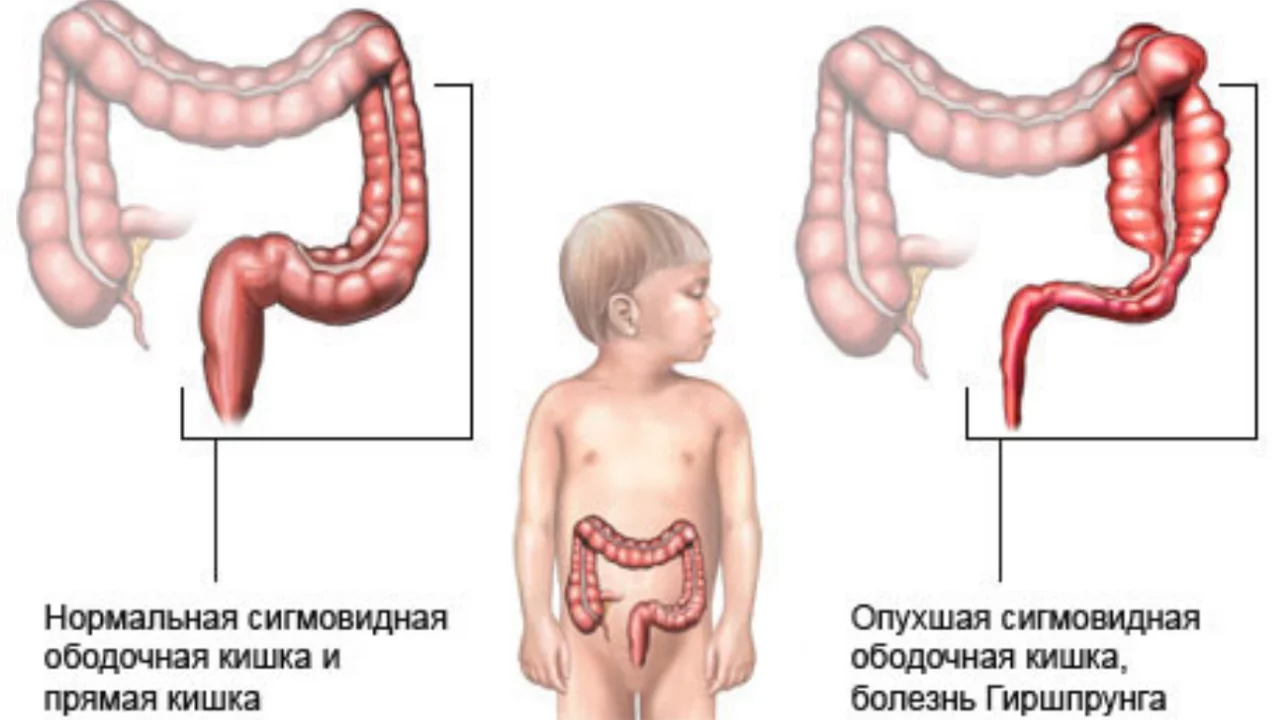Is your child constipated or having diarrhea? Be aware of the Hirschsprung risk!

Some newborns face intestinal problems from the very first days of life. Sometimes it's not simple constipation, but a serious disease — Hirschsprung’s syndrome. This is a congenital defect of the large intestine that disrupts the normal bowel movement process in babies.
What is Hirschsprung disease? The core of the issue
Hirschsprung’s disease is a congenital disorder where nerve cells (Meissner and Auerbach plexuses) in the intestine do not develop properly or are completely absent. This impairs the peristaltic movement, causing stool retention, constipation, and abdominal bloating.
Medical research shows that the condition is mostly diagnosed in newborns. It occurs more frequently in boys — 3 out of 4 cases affect male infants.
Causes: How does Hirschsprung develop?
Experts associate the disease with certain conditions during pregnancy:
- Stress or illness during pregnancy;
- Vitamin deficiency, especially B group vitamins;
- Contracting infections during early pregnancy;
- Poor diet and avitaminosis.
These factors prevent the full formation of nerve cells in the fetal intestines, blocking normal nerve impulse transmission.
Complications: Warning signs in babies
Key symptoms include:
- No stool within the first 48 hours after birth;
- Noticeable bloating;
- Frequent vomiting, especially green-colored fluid;
- Loss of appetite, fatigue.
If stool is not excreted, toxins are reabsorbed into the body, causing poisoning. The baby becomes weak, loses weight, has dry skin, sunken eyes, and thin limbs.
Treatment options: There is always a solution
Hirschsprung disease can be treated in two main ways:
1. Conservative treatment — for mild cases, medication, enemas, and dietary adjustments are prescribed. This improves bowel movement and general health.
2. Surgical intervention — in severe cases, the affected intestinal section is removed to restore normal function.
Post-operative care: Attention is crucial
After surgery, some children may develop colitis (inflammation of the colon). Therefore:
- Avoid fried and fatty foods;
- Prefer steamed dishes, soft porridges, and broths;
- Maintain a strict meal and rest routine.
Early diagnosis is half the cure!
Though it may seem like simple constipation, Hirschsprung’s syndrome can severely affect the whole body. Don’t delay — consult a specialist at the first sign of trouble.
 Read “Zamin” on Telegram!
Read “Zamin” on Telegram! Ctrl
Enter
Found a mistake?
Select the phrase and press Ctrl+Enter 












